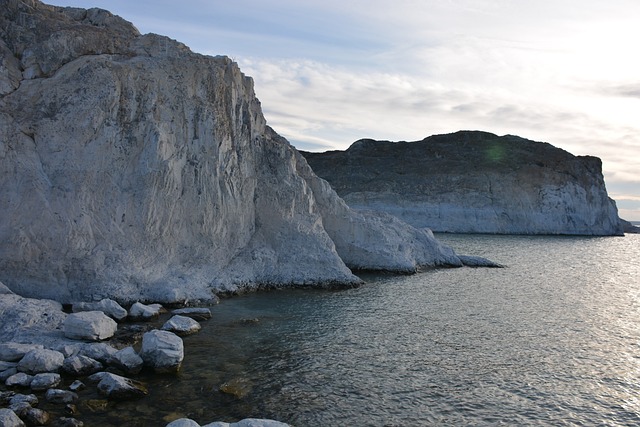A Journey Through Time: The Magic of Historical Guided Tours
In an age dominated by digital experiences and rapid technological advancements, the value of historical guided tours remains unparalleled. They provide a tangible connection to the past, enabling individuals to explore and appreciate the intricacies of heritage through informed storytelling and immersive experiences. This article delves deep into the allure of historical guided tours, unraveling their significance, the unique experiences they offer, and the benefits they bring to individuals and communities alike.
The Essence of Historical Guided Tours
Historical guided tours blend education, entertainment, and engagement into one cohesive experience. These tours are designed to transport participants back in time, allowing them to witness the narrative of a place or event unfold in its original context. Expert guides, often well-versed in local history, serve as narrators who breathe life into the stories of yesteryears. Their ability to convey passion and knowledge makes every tour a unique journey of discovery.
A Unique Narrative Experience
One of the most captivating aspects of historical guided tours is the narrative style in which the information is presented. Unlike traditional classroom learning, these tours utilize the environments and artifacts surrounding them to create a contextual learning experience. Whether it’s strolling through cobblestone streets, entering ancient castles, or exploring long-abandoned ruins, participants are enveloped in an atmosphere rich with stories waiting to be told.
Storytelling: The Heart of the Tour
At the core of every successful historical tour is storytelling. Excellent guides are skilled narrators who possess the ability to weave factual information with engaging tales that resonate emotionally with audiences. They can share legends, anecdotes, and historical accounts that make the past relatable and vivid. Each story helps to create a deeper understanding of the people and events that shaped our world, allowing participants to forge a stronger connection with history.
Educational Benefits
Historical guided tours go beyond mere storytelling; they are invaluable educational resources. Many tours include a wealth of historical context, allowing participants to learn about specific events, figures, and cultural dynamics that shaped a particular region. For students, these tours serve as dynamic classroom experiences. They bring history textbooks to life and often complement school curricula by providing real-world applications of learned concepts.
Critical Thinking and Engagement
Engaging with history in person encourages critical thinking. Participants are invited to ask questions, discuss their perspectives, and challenge historical interpretations. Such interaction fosters a deeper understanding of historical complexities, as individuals grapple with the nuances that textbooks often cannot convey. Historical tours empower individuals to share their thoughts and contribute to the conversation about our collective past.
Promoting Cultural Heritage
Historical guided tours play a crucial role in promoting and preserving cultural heritage. They help to celebrate local traditions, customs, and historical narratives that might otherwise be forgotten. By attracting tourists to historical sites, these tours not only boost local economies but also create awareness and appreciation for indigenous cultures and histories.
Economic Impact
The economic benefits of historical guided tours extend beyond immediate tourism revenue. When tours attract visitors, they create jobs, not just for guides, but also for individuals in hospitality, retail, and transportation sectors. Historical sites often require maintenance and interpretation staff to enhance visitor experiences, contributing further to economic growth in the area.
Fostering Community Connection
Historical guided tours often serve as a bridge between communities and their pasts. Through these tours, residents can rediscover their own heritage, encouraging a sense of pride and connection to their roots. Local communities sometimes become involved in the process of storytelling, sharing their unique experiences, folklore, and perspectives. This participation can also foster a sense of unity as residents come together to celebrate shared histories.
Types of Historical Guided Tours
Historical guided tours come in various formats, catering to diverse interests and audiences. Some of the most common types include:
Walks Through Time
Walking tours are among the most popular ways to explore historical sites. They typically involve taking leisurely strolls through neighborhoods, allowing participants to absorb local architecture, historical markers, and urban legends. Walking tours require minimal equipment, and they can be tailored to various themes such as architecture, famous figures, or significant events.
Cultural Heritage Tours
Cultural heritage tours focus on the traditions, customs, and practices unique to particular communities or regions. They often include visits to museums, art galleries, and cultural centers, providing a broader understanding of how history influences contemporary culture. These tours are particularly enriching, as they encourage participants to appreciate the living history of the communities they visit.
Virtual and Augmented Reality Tours
In an era of technological advancement, many tour providers have embraced virtual and augmented reality experiences. Although they cannot fully replicate the impact of being physically present, these innovations enrich the historical guided tour experience by providing interactive elements. Participants can use devices to access augmented information, visuals, or even re-enactments that enhance critical moments in history.
Choosing a Historical Guided Tour
While there is a multitude of guided tours available, selecting the right one can greatly influence the overall experience. Several factors can help individuals make an informed decision:
Researching Tour Companies
It’s essential to research different tour companies to ensure knowledgeable guides lead the tours. Reading participant reviews, checking tour itineraries, and looking for knowledgeable and experienced guides can enhance the experience. A reputable company often invests time in training guides to deliver engaging narratives.
Customization and Special Interests
Some tour companies provide opportunities for customization based on specific interests. Participants should inquire about themed tours, whether related to specific historic events, figures, or local culture. This personalization can make the tour even more fulfilling, catering to the interests of different participants.
Safety and Comfort
Participants should consider safety and comfort when choosing tours. Inquire about group sizes, health-related measures, accessibility options, and any necessary prerequisites for physically demanding tours, particularly those that involve extensive walking or difficult terrain. Being aware of these factors ensures a fruitful and enjoyable exploration of history.
The Future of Historical Guided Tours
As we look ahead, the future of historical guided tours promises exciting innovations and developments. The integration of technology, the increased focus on sustainability, and the evolving demands of travelers are likely to shape the tours of tomorrow. Guides may incorporate more interactive storytelling methods, utilize digital platforms for marketing, and prioritize eco-friendly practices to ensure that these valuable experiences remain available for future generations.
Conclusion
Historical guided tours are a magical way to bridge the gap between the past and the present. They foster education, promote cultural heritage, and create meaningful community connections. By stepping into the shoes of those who came before us, we can glean valuable insights and gain a deeper understanding of our world. Whether through a leisurely stroll along historic streets or an engaging cultural exploration, every historical guided tour offers an opportunity to take a journey through time, celebrating our shared heritage while embracing the future.


